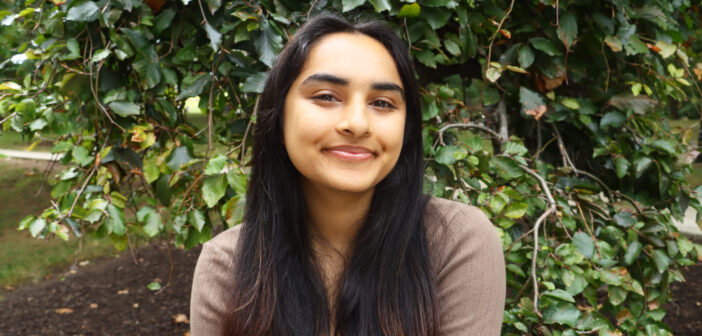Recently, I was invited to speak on a panel about my experience as a person of color in a workplace setting. As I sat there, sharing my story with a large, diverse audience, I realized this was the first time at Lehigh I’d been asked to talk about my South Asian background in such a public forum.
Up until that moment, conversations about my cultural identity had been confined to smaller, insulated spaces — my South Asian friend group or our cultural club, SASA. This experience made me recognize a critical gap on campus: a lack of spaces where students like me can discuss our cultural experiences with the broader community.
Lehigh reports that 11% of its undergraduate population is Asian. This population has grown nearly 34% since 2021, but part of this can be attributed to the increase in class sizes.
For the most part, I haven’t had the opportunity to share my South Asian identity with people outside of smaller, like-minded groups. This absence has left me hesitant to engage in cultural conversations in public settings, as I have rarely seen a space where my background is welcome as part of the dialogue.
It’s also made me reluctant to talk about events in my cultural club or invite people outside of the South Asian community to these events. I haven’t shared this part of my life with them before, and without that bridge, it feels uncomfortable to suddenly include them.
This realization became even more apparent after a Panhel-organized discussion about anti-semitism within my sorority. The goal of the talk was to address recent concerns and provide a space for members to share their experiences and learn about the harmful impact of anti-semitism.
It was an incredibly important and eye-opening experience, offering a space for genuine learning and empathy. The discussion helped foster a deeper understanding of how vital it is to have platforms for exploring difficult issues related to identity and culture.
However, it also highlighted something personal for me. Despite being part of the same sorority, I’d never had the chance to share my own South Asian history, experiences or perspectives in that space.
This conversation was a powerful reminder of how crucial it is to have open spaces to discuss issues of identity and culture. It also emphasized the absence of similar opportunities for South Asian students to engage in meaningful exchanges about our own backgrounds. We are often limited to niche conversations within our clubs or friend groups, rather than being invited into the larger campus discourse, where our stories could foster greater understanding.
This is not just a personal reflection — it’s part of a broader observation about the need for more spaces for cultural dialogue at Lehigh.
While the university values diversity, creating spaces for students, faculty and staff to talk about cultural experiences is essential for true inclusivity. By fostering these conversations, the campus community can grow stronger and more empathetic, learning from the diverse perspectives that each individual brings.
Lehigh has made some strides in promoting diversity, but there is always room to grow.
By creating both formal and informal opportunities for students from underrepresented cultural groups to share their experiences, the university can continue its journey toward a more inclusive campus. This discourse can help ensure that every voice is heard and valued and that the richness of each student’s background becomes part of the university’s collective narrative.
Institutions like Lehigh have the potential to be somewhere all students, regardless of background, feel seen and heard. With a more intentional focus on cultural dialogue, the university can create an environment where every story matters and every student can fully contribute to the campus community.
Campus Voices is a new subsection of The Brown and White where campus community members can submit opinion pieces. If interested, contact Julia Contino at [email protected].






Comment policy
Comments posted to The Brown and White website are reviewed by a moderator before being approved. Incendiary speech or harassing language, including comments targeted at individuals, may be deemed unacceptable and not published. Spam and other soliciting will also be declined.
The Brown and White also reserves the right to not publish entirely anonymous comments.